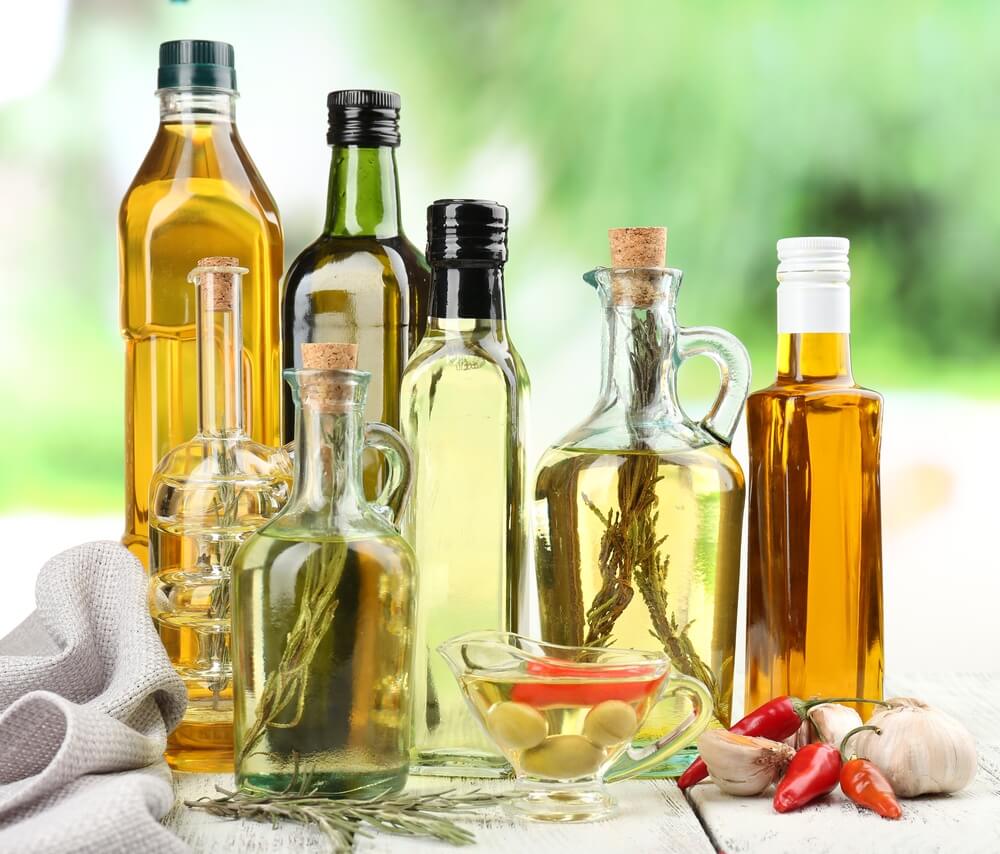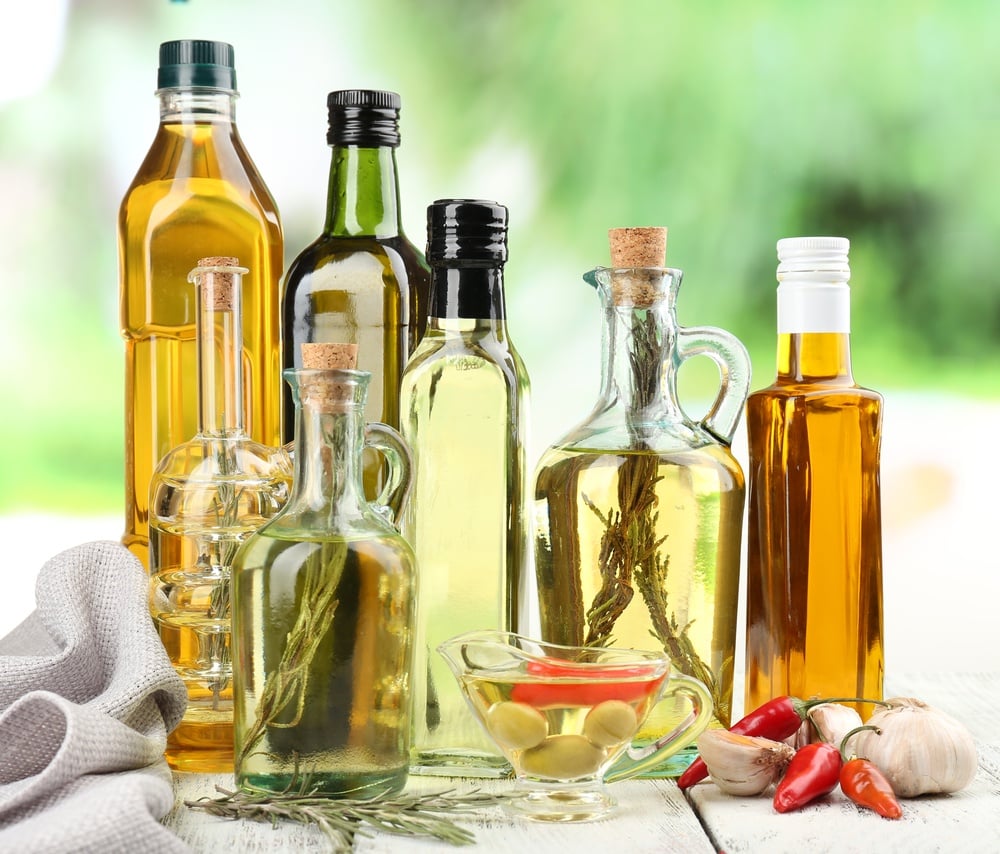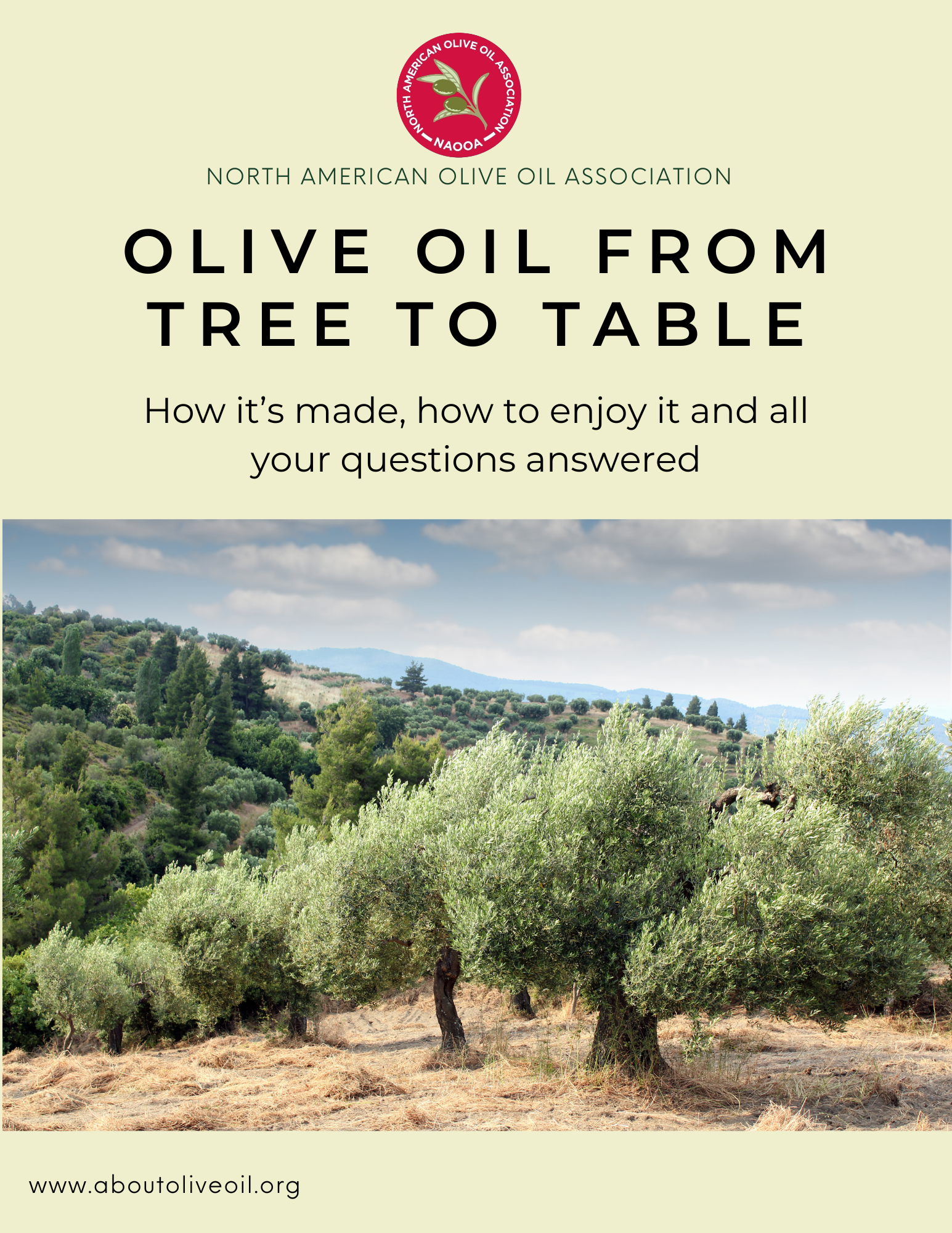Most shoppers know that extra virgin olive oil is the highest grade of olive oil available--all natural, full of flavor and healthy compounds. But what other forms of olive oil are there and should you buy them?
The first thing to know is this: if an olive oil is not described as "virgin" or "extra virgin" then it likely contains oil that has been refined.
Refined olive oils have undergone a process that makes them comparable to commonly sold vegetable oils in terms of neutral flavor and color, but with the health advantages associated with the oleic acid in olive oil, and without the use of chemical solvents and high heat in the extraction process commonly used in vegetable oils. For an explanation of what the refining process entails, see here.
Why are some olive oils refined? All olive oil—i.e., all grades, from regular and light tasting olive oils to extra virgin—are harvested once a year and the oil extracted mechanically, without the use of chemicals. The resulting oil is graded. The best tasting olive oil meeting strict quality and purity parameters can be sold as extra virgin olive oil. Extra virgin olive oils undergo only very minimal processing, such as filtration. Oils that don't meet the high standards of extra virgin can be refined—a purification process that removes flavor and color, identical to the process that other neutral tasting oils go through like corn, canola and soybean oils. Typically refined olive oil is blended with about 15-20% virgin or extra virgin olive oil to give it some taste and color before it is sold. So, if a product is called simply "olive oil" (or “regular olive oil” or “classic olive oil” or sometimes even “pure olive oil”) it is a mixture of two types of olive oil: refined and virgin and thus it will have a little olive flavor from the added virgin olive oil. If a product is called “light-tasting” olive oil, less virgin olive oil is added, and therefore the oil will be neutral tasting.
"Olive oil" is 100% authentic olive oil that has many of the same health benefits as extra-virgin olive oil at a lower cost. Here are some facts about olive oil.

- "Olive Oil" has all of the same heart-healthy monounsaturated fat as extra-virgin olive oil.
- "Olive Oil" contains around 15-20% of the healthy antioxidants and polyphenols found in extra virgin olive oil.
- The FDA and the American Heart Association have designated olive oils of all qualities, including "Olive Oil", as "heart healthy".
- "Olive Oil" may range in color from green to light yellow (depending on the color and amount of extra virgin that is added).
- Like all olive oil, "Olive Oil" may solidify in cold temperatures but this is not an indicator of quality.
- "Olive Oil" should be stored the same way as extra-virgin olive oil to avoid rancidity.
- The refining process can be (depending on the olive oil free acidity level) much less harsh than that used for other cooking oils (e.g., corn, vegetable, soy, canola) because unlike those products, olive oil by definition can NEVER be extracted using chemical solvents, making olive oil an especially healthy cooking oil.
Some people refer to "olive oil" as classic olive oil, regular olive oil or pure olive oil, although this last term is discouraged to avoid confusion. Olive oil is beloved by those who prefer a lighter tasting olive oil but still with the healthy monounsaturated fat profile.
What is the difference between "Olive Oil" and "light-tasting" olive oil?
Light-tasting or extra light-tasting olive oil is similar "Olive Oil" but contains a higher percentage of refined olive oil. It has the same number of calories and grams of fat as all olive oils; because it has less virgin olive oil enrichment, it has less polyphenols and antioxidants that "olive oil." The word "light" means it has a lighter flavor.
When should I use Olive Oil in place of Extra Virgin Olive Oil?
It really comes down to a question of taste preferences and budget.
- "Olive Oil" has a milder flavor which makes it a good choice for some recipes. The neutral flavor of the oil will not interfere with other flavors in your dish.
- "Olive Oil" is a good substitute for seed and vegetable oils. Unlike seed oils, olive oil is extracted without the use of solvents making it the more natural choice.
- "Olive Oil" is less expensive than extra virgin olive oil.
And keep in mind the general rule that all olive oils are healthy, but the more flavor, the more health benefits you can expect. To find an olive oil that has been certified for quality and authenticity, check out our list of certified olive oils.






